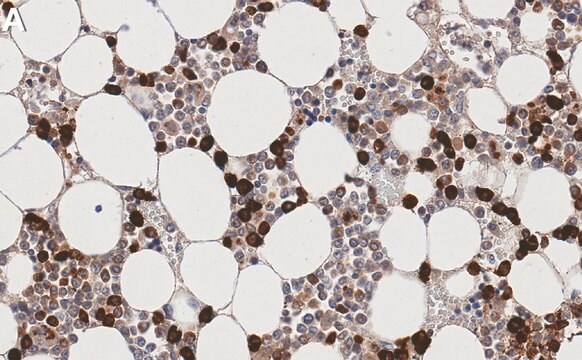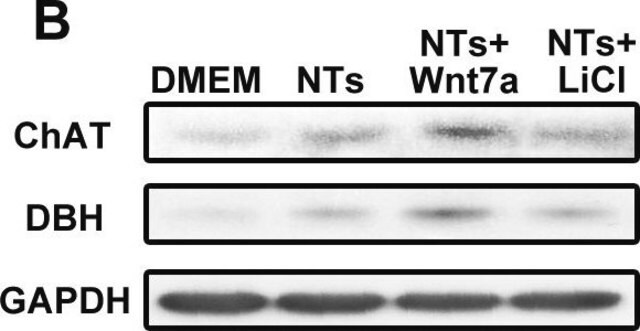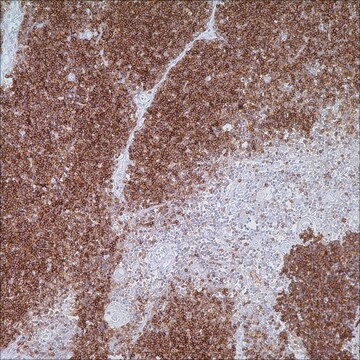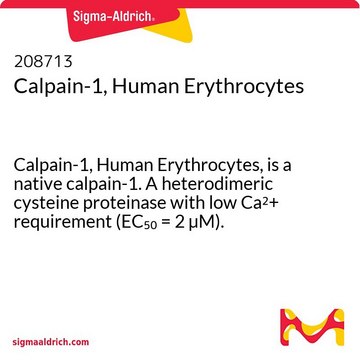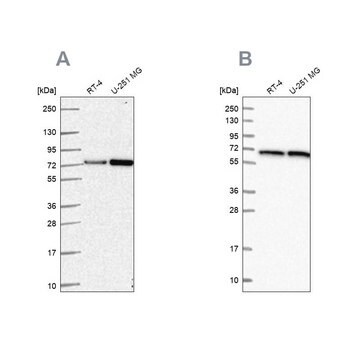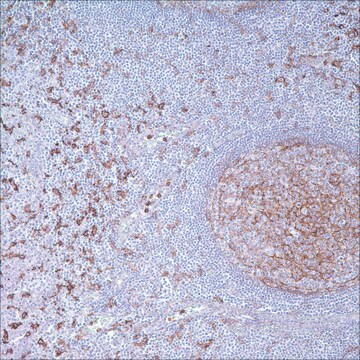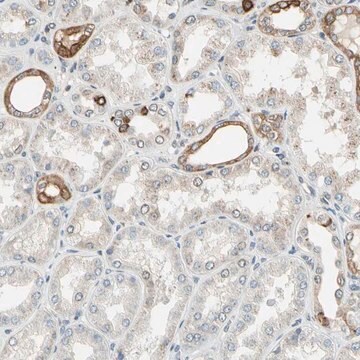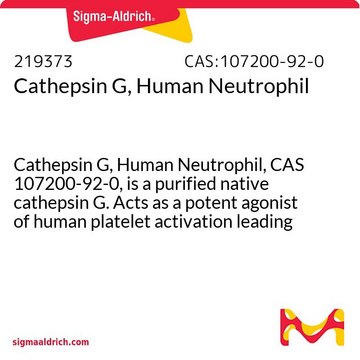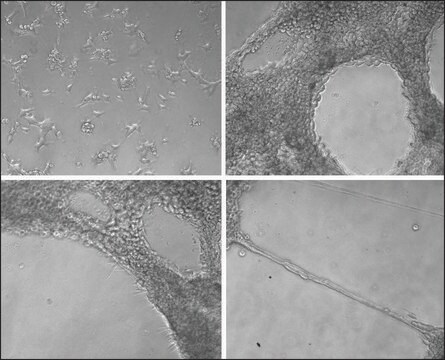ZRB2754
Anti-SETD8/KMT5A Antibody, clone 5L10 ZooMAb® Rabbit Monoclonal

recombinant, expressed in HEK 293 cells
Synonym(e):
N-lysine methyltransferase KMT5A;EC: 2.1.1.43;H4-K20-HMTase KMT5A;Histone-lysine N-methyltransferase KMT5A;Lysine N-methyltransferase 5A;Lysine-specific methylase 5A;PR/SET domain-containing protein 07;PR-Set7, PR/SET07, SET domain-containing protein 8
About This Item
Empfohlene Produkte
Biologische Quelle
rabbit
Qualitätsniveau
Rekombinant
expressed in HEK 293 cells
Konjugat
unconjugated
Antikörperform
purified antibody
Antikörper-Produkttyp
primary antibodies
Klon
5L10, recombinant monoclonal
Beschreibung
5L10 Clone
Produktlinie
ZooMAb® learn more
Form
lyophilized
Mol-Gew.
calculated mol wt 42.89 kDa
observed mol wt ~60 kDa
Aufgereinigt durch
using Protein A
Speziesreaktivität
human, mouse
Verpackung
antibody small pack of 25 μL
Grünere Alternativprodukt-Eigenschaften
Waste Prevention
Designing Safer Chemicals
Design for Energy Efficiency
Learn more about the Principles of Green Chemistry.
Erweiterte Validierung
recombinant expression
Learn more about Antibody Enhanced Validation
sustainability
Greener Alternative Product
Methode(n)
ELISA: suitable
affinity binding assay: suitable
immunocytochemistry: suitable
immunohistochemistry: suitable
western blot: suitable
Isotyp
IgG
Epitopsequenz
Internal
Protein-ID-Hinterlegungsnummer
UniProt-Hinterlegungsnummer
Grünere Alternativprodukt-Kategorie
Versandbedingung
ambient
Lagertemp.
2-8°C
Posttranslationale Modifikation Target
unmodified
Angaben zum Gen
human ... KMT5A(387893)
Allgemeine Beschreibung
Spezifität
Immunogen
Anwendung
Evaluated by Immunohistochemistry (Paraffin) in human thyroid tissue sections.
Immunohistochemistry (Paraffin) Analysis: A 1:100 dilution of this antibody detected SETD8/KMT5A in human thyroid tissue sections.
Tested Applications
Affinity Binding Assay: A representative lot of this antibody bound SETD8/KMT5A protein fragment with a KD of 8.0 x 10-8 in an affinity binding assay.
Immunocytochemistry Analysis: A 1:100 dilution from a representative lot detected SETD8/KMT5A in A431, HeLa, HepG2, and NIH 3T3 cells.
Western Blotting Analysis (WB): A 1:1,000 dilution of this antibody detected SETD8/KMT5A in NIH3T3 cell lysate.
Western Blotting Analysis (WB): A 1:1,000 dilution of this antibody detected FLAG-tagged recombinant Human SETD8/KMT5A.
Enzyme Immunoassay Analysis (ELISA): A serial dilution of this antibody detected recombinant Human SETD8/KMT5A.
Note: Actual optimal working dilutions must be determined by end user as specimens, and experimental conditions may vary with the end user
Zielbeschreibung
Physikalische Form
Lagerung und Haltbarkeit
Rechtliche Hinweise
Haftungsausschluss
Sie haben nicht das passende Produkt gefunden?
Probieren Sie unser Produkt-Auswahlhilfe. aus.
Lagerklassenschlüssel
11 - Combustible Solids
WGK
WGK 1
Flammpunkt (°F)
Not applicable
Flammpunkt (°C)
Not applicable
Hier finden Sie alle aktuellen Versionen:
Analysenzertifikate (COA)
It looks like we've run into a problem, but you can still download Certificates of Analysis from our Dokumente section.
Wenn Sie Hilfe benötigen, wenden Sie sich bitte an Kundensupport
Besitzen Sie dieses Produkt bereits?
In der Dokumentenbibliothek finden Sie die Dokumentation zu den Produkten, die Sie kürzlich erworben haben.
Unser Team von Wissenschaftlern verfügt über Erfahrung in allen Forschungsbereichen einschließlich Life Science, Materialwissenschaften, chemischer Synthese, Chromatographie, Analytik und vielen mehr..
Setzen Sie sich mit dem technischen Dienst in Verbindung.